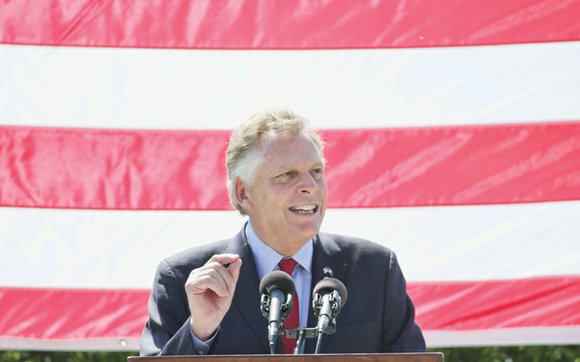Will parole return to Virginia?
Gov. appoints commission to consider possibility
7/24/2015, 8:28 a.m.
Thirty-three elderly inmates from the state prison in Buckingham County have sent a petition to Gov. Terry McAuliffe urging him to consider reinstating parole in Virginia.
In the petition, the inmates noted the abolition of parole has “not significantly prevented, reduced or deterred crime.”
Instead, the requirement that convicts serve at least 85 percent of their time has ballooned the state prison population from around 18,000 in 1994 to more than 30,000 in 2014, they wrote.
“It costs Virginia’s taxpayers approximately $30,000 a year to keep long-term, rehabilitated prisoners locked up for crimes we committed years ago in our youth,” the inmates continued.
Studies have shown that parole saves money, costing less than $4,000 per person a year, or seven times less than the cost of housing one prisoner.
The savings, the inmates stated, could go to meet other needs, such as “financing early childhood education; pay raises for underpaid schoolteachers; rebuilding antiquated and dilapidated school buildings; (and providing) community-based” programs to treat drug abuse, reduce domestic and gang violence and serve the homeless and unemployed.”
While it’s unknown how much influence the petition had, what is known is that Gov. McAuliffe has set up a commission to reconsider parole and offer recommendations before the start of the next session of the General Assembly.
His move comes as Congress begins to consider whether parole and other reforms are needed to reduce the huge federal prison population.
Gov. McAuliffe named Republican Mark Earley, a former state attorney general, to lead the commission with two Democratic members of his cabinet, Brian Moran, secretary of public safety, and Levar Stoney, secretary of the commonwealth.
The governor explained that 20 years have passed since parole was banned during the administration of Republican Gov. George Allen.
That time span makes it “appropriate to determine if it is the best, most cost-effective way to keep people safe,” Gov. McAuliffe stated.
He said the commission would evaluate the policy, assess progress and public safety outcomes and determine whether the intended goals of abolishing parole for felony offenders have been achieved.
In 1994, when parole was abolished, Gov. McAuliffe stated that “supporters argued that abolishing parole and requiring felony offenders to serve at least 85 percent of their sentences would reduce re-offenses and recidivism while strengthening public safety.”
He noted that the state has more than adequate data to determine if the policy worked and still needs to be in place.
He also called on the commission to study whether Virginia is properly rehabilitating offenders and preparing them to re-enter communities as productive citizens. He also wants the commission to look at the length of sentences and to consider whether long sentences are appropriate for nonviolent offenders.
The governor did not mention one item that the petition from the prisoners underlined — increased use of the governor’s clemency powers to allow early conditional release for elderly prisoners.
According to the petition, “between 1994 and 2010, only 15 geriatric prisoners were granted early release despite the growing costs to taxpayers for their end-of-life medical care.”
All 33 inmates on the petition are serving long terms. In their petition, they noted their records behind bars show they have learned their lesson and deserve to be considered for conditional released. “As it presently stands, we will die in prison before our release dates unless Gov. McAuliffe exercises his clemency power.”







